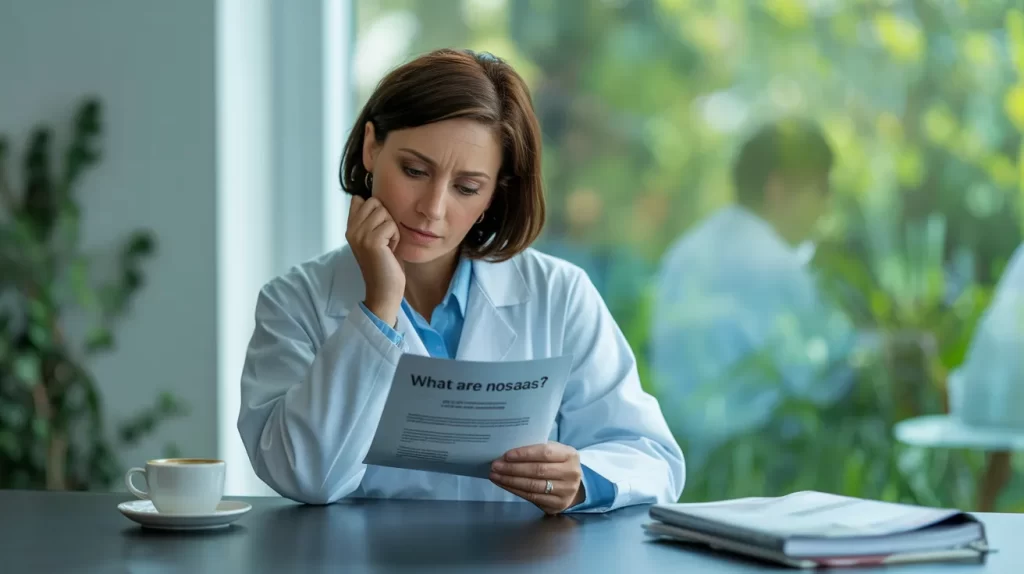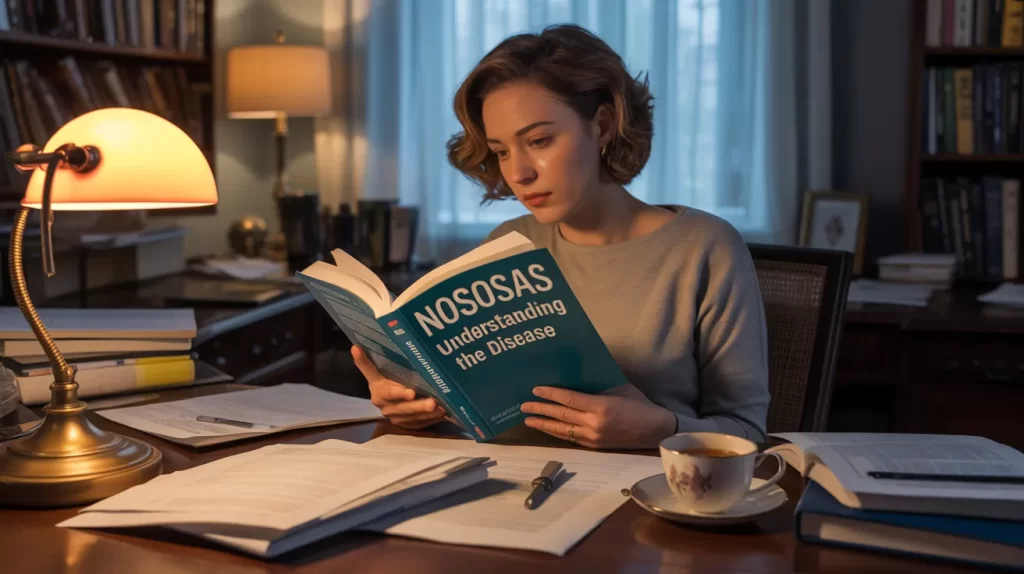Table of Contents
When I first heard about nososas, I was confused. What exactly is this condition? After doing my research and speaking with medical professionals, I want to share everything I’ve learned about this complex disease.
In this guide, I’ll walk you through what nososas means, help you recognize its symptoms, and explain the treatment options available. My goal is to make this information easy to understand so you can make informed decisions about your health.
What are Nososas? Here’s What I Found Out
From my research, I discovered that nososas comes from the Greek word “nosos,” which simply means “disease.” It’s not just one specific illness, but rather a term that describes various conditions that can affect different parts of your body.
What makes nososas tricky is that they can show up in many different ways. Some people might have mild symptoms, while others face more serious health challenges. I learned that early recognition is key to getting the right treatment.
Read also: Why Do So Many Filipinos Wear Braces on Their Teeth?
The Symptoms I Should Watch For

Through my research, I found that nososas symptoms can vary greatly from person to person. Here are the main warning signs I learned to look out for:
Physical Symptoms
- Constant tiredness: I might feel exhausted even after resting
- Persistent cough: This doesn’t go away with typical cold remedies
- Fever and chills: My body temperature might fluctuate
- Loss of appetite: I may not feel hungry and lose weight unexpectedly
- Swelling: Certain areas of my body might become inflamed
- Breathing problems: I might feel short of breath or have trouble breathing
Other Warning Signs
- Unexplained pain: I could experience chest or stomach pain
- Skin changes: Rashes or unusual marks might appear on my skin
- Sudden weight loss: I might lose weight without trying
What I found important is that these symptoms don’t always appear together. I might have just a few of them, which is why it’s crucial to pay attention to any changes in my body.
How Doctors Diagnose Nososas?
When I researched how doctors identify nososas, I learned they use several methods to make sure they get an accurate diagnosis:
Medical Examination
First, my doctor would ask about my symptoms and medical history. They’d want to know when I first noticed problems and how they’ve changed over time.
Testing Methods
- Blood tests: These help doctors find signs of inflammation in my body
- Imaging scans: X-rays or CT scans can show if any organs are affected
- Tissue samples: In some cases, doctors might need to examine tissue under a microscope
- Molecular testing: This advanced testing can detect specific causes of the disease
I learned that getting the right diagnosis might take time, but it’s essential for finding the best treatment plan.
Treatment Options That Actually Work
From my research, I found that treating nososas depends on what’s causing it and how severe my symptoms are. Here are the main approaches doctors use:
Medications
- Antibiotics: If bacteria are causing my symptoms, these medications can help
- Antiviral drugs: For virus-related cases, these medicines target the infection
- Steroids: These reduce inflammation in my body
- Pain relievers: These help manage discomfort while I recover
Supportive Care
- Rest and hydration: My body needs time and fluids to heal
- Proper nutrition: Eating well helps my immune system fight the disease
- Pain management: Doctors can prescribe stronger medications if needed
Advanced Treatments
In more serious cases, I might need surgery or physical therapy to help my body recover properly.
How Can I Prevent Nososas?
Prevention is always better than treatment. Here’s what I learned about protecting myself:
Basic Prevention
- Good hygiene: I should wash my hands regularly and wear a mask when needed
- Vaccination: If vaccines are available, I should get them
- Safe food and water: I need to be careful about what I eat and drink
- Clean environment: Keeping my living space clean helps prevent disease spread
Staying Informed
I should stay updated on health advisories in my area and follow recommendations from health authorities like the CDC.
Living with Chronic Nososas
Sometimes, nososas can become a long-term condition. If this happens to me, I learned that managing it involves:
Regular Medical Care
- Regular check-ups: I need to see my doctor consistently
- Monitoring symptoms: I should track how I’m feeling daily
- Medication management: Taking prescribed medicines exactly as directed
Lifestyle Changes
- Diet modifications: Eating healthy foods that support my immune system
- Exercise program: Gentle activities that don’t worsen my condition
- Stress management: Finding ways to reduce stress in my life
Support Systems
- Mental health support: Talking to counselors about the emotional impact
- Family support: Having loved ones understand my condition
- Support groups: Connecting with others who have similar experiences
The Impact on Public Health
From my research, I learned that nososas affect communities differently. In the United States, health agencies work hard to:
- Monitor disease outbreaks
- Provide treatment guidelines
- Educate the public about prevention
- Coordinate responses to health emergencies
This shows me that nososas is taken seriously by health professionals, and support is available when I need it.
Current Research and Future Hope
Scientists are constantly working to understand nososas better. I found that research focuses on:
- Better diagnostic methods: Making it easier to identify the disease early
- New treatments: Developing more effective medications
- Prevention strategies: Finding better ways to stop the disease from spreading
- Long-term management: Helping people live better lives with chronic conditions
What I Should Do If I Suspect Nososas
If I think I might have nososas, here’s my action plan:
- Don’t panic: Many symptoms can be caused by other, less serious conditions
- Document symptoms: I should write down what I’m experiencing and when
- See a doctor: Getting professional medical advice is crucial
- Follow treatment plans: If diagnosed, I need to stick to my doctor’s recommendations
- Stay informed: I should learn about my condition from reliable sources
Final Words
Understanding nososas has helped me realize how important it is to pay attention to my body and seek help when needed. While this disease can be serious, early detection and proper treatment can make a significant difference in outcomes.
I encourage everyone to stay informed about their health, practice good hygiene, and work with healthcare providers to prevent and manage diseases like nososas. Remember, knowledge is power when it comes to protecting our health.
If you’re experiencing any symptoms that concern you, don’t hesitate to contact your healthcare provider. They can help determine if you need further evaluation and guide you toward the best treatment options for your situation.






